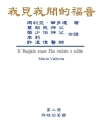In ‘The Apostles, ‘ Ernest Renan meticulously explores the lives and impact of the early Christian apostles, examining their historical and cultural contexts with both reverence and criticality. Renan employs a narrative style that blends biographical detail with philosophical inquiry, engaging readers in the broader implications of these figures on the development of Christianity. His deft prose invites reflection on the complexities of faith, doctrine, and the sociopolitical landscapes of the 1st century, encapsulated within an imaginative framework that seeks to reconcile history with spirituality. Ernest Renan, a French philosopher and historian, was deeply influenced by the tumultuous intellectual atmosphere of the 19th century, which was characterized by a burgeoning critique of religion and the rise of secularism. His own background as a theological student, coupled with his later disillusionment with formal religious institutions, motivated him to approach the subject of the apostles not only as historical figures but as embodiments of the evolving notion of faith. Renan’s scholarly rigor and literary flair position him as a pivotal voice in the intersection of history, philosophy, and theology. For readers intrigued by the origins of Christianity and the historical underpinnings of its key figures, ‘The Apostles’ offers a thought-provoking exploration that challenges conventional narratives and invites deeper contemplation. Renan’s synthesis of history and theology is essential for anyone seeking a nuanced understanding of this transformative epoch.
Об авторе
Ernest Renan was a French philosopher, historian, and writer, renowned for his influential works on religion and his study of Semitic languages. Born on February 27, 1823, in Tréguier, Brittany, Renan was known for his deep exploration of the early Christian church and biblical criticism. His book ‘The Apostles’ is a notable work that reflects his scholarly engagement with the origins of Christianity, where he examines the lives and actions of the apostles after Christ’s crucifixion, offering a historical and psychological analysis of their motivations and the nascent Christian community. Renan is often celebrated for his erudite narrative and literary style, which blends rigorous scholarship with accessible prose, challenging and engaging both learned and popular audiences. His legacy extends to a variety of disciplines, such as theology, philology, and history, influencing subsequent generations of scholars and thinkers. Renan’s extensive oeuvre includes works like ‘Life of Jesus’ and ‘The Future of Science’, where he combines critical historical research with thoughtful speculation on the nature of religious belief and the progress of science. A member of the Académie Française, Renan is remembered for his profound impact on the intellectual debates of the 19th century, carefully navigating between faith and skepticism, tradition and progress, while shaping modern studies of religion and culture.












